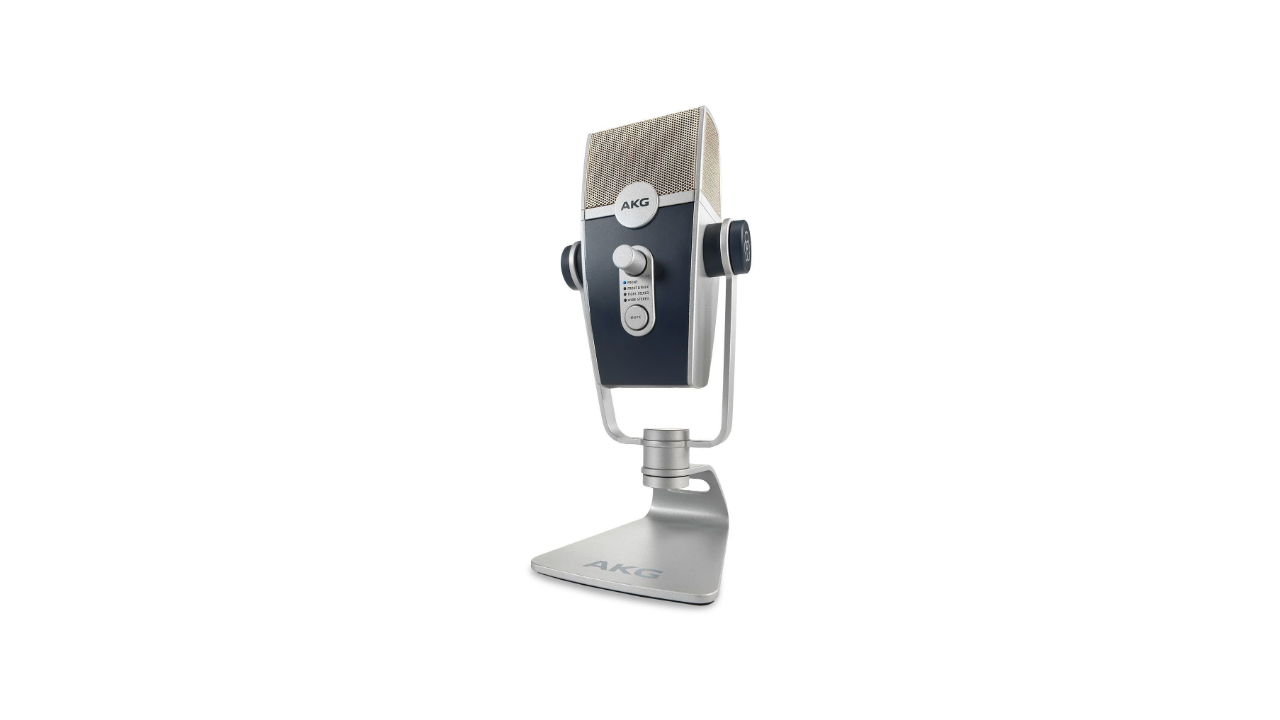MusicRadar Verdict
There are cheaper mic options out there, for sure, but the AKG Lyra is sonically in another league compared to many USB mics we have tested, and will stretch to many more musical duties, as well as giving your podcasts a professional sound. A very solid, great sounding USB mic choice and at a decent price.
Pros
- +
Hi resolution 24/192 recording
- +
Zero Latency monitoring
- +
Multi pattern options
- +
Good build
Cons
- -
No level indicator
MusicRadar's got your back
AKG Lyra review: What is it?
As podcasting has exploded over the last couple of years, all while Twitch streaming has become a thing and, of course, those Zoom meetings have become regular parts of our lives, so the quality of the sound going into your computer has had to keep up. Luckily, the race for better digital mic audio has also meant that the big guns in microphone manufacturing are now very much 'in the game'; all the big brand names in the audio industry now seem to boast USB mic options and great budget podcasting microphones, so we are getting better overall quality and all with the convenience of USB – that being direct connectivity and no need for a separate audio interface. USB microphones are getting better then, and the AKG Lyra reviewed here boasts some of the best specs we've seen along with very flexible recording options.
AKG's Lyra USB condenser mic certainly has the famous brand name to back up its claims – AKG is a company that has been making great audio products since 1947. On paper it also boasts enough numbers to bring quality to your ‘casts and, we suspect, your music recordings too. It's called an 'Ultra HD' USB microphone, the high definition of which is brought to you by way of some impressive stats including a wide frequency response, low noise and, most importantly, a 24-bit/192 kHz resolution. This is about as good as it gets with USB mic technology and, as we'll see, really does give you a great level of recording quality.
There is also an impressive level of flexibility by way of four polar patterns to choose from, although not with the traditional 'cardioid' type names, instead titled as Wide Stereo, Narrow Stereo, Front and Front/Back options. These essentially change the recording characteristics of the mic depending on what you are using it for by changing the pattern of the mic, that being the area that it focuses on for its best recordings. You pretty much get the idea of these patterns from their names. Tight Stereo is best for instrument recordings while Front will be best for vocal capture and Front/Back for the more flexible podcast interview.
There's also a Mute button to switch yourself off when doing said interviews – always a good option, but don't forget to switch it back on again! And then there's headphone monitoring, an especially useful option when you are streaming in a loud environment. You'll want to hear your voice and this is zero latency monitoring, so there will be no awkward delays when doing it, and it is a real standout feature.
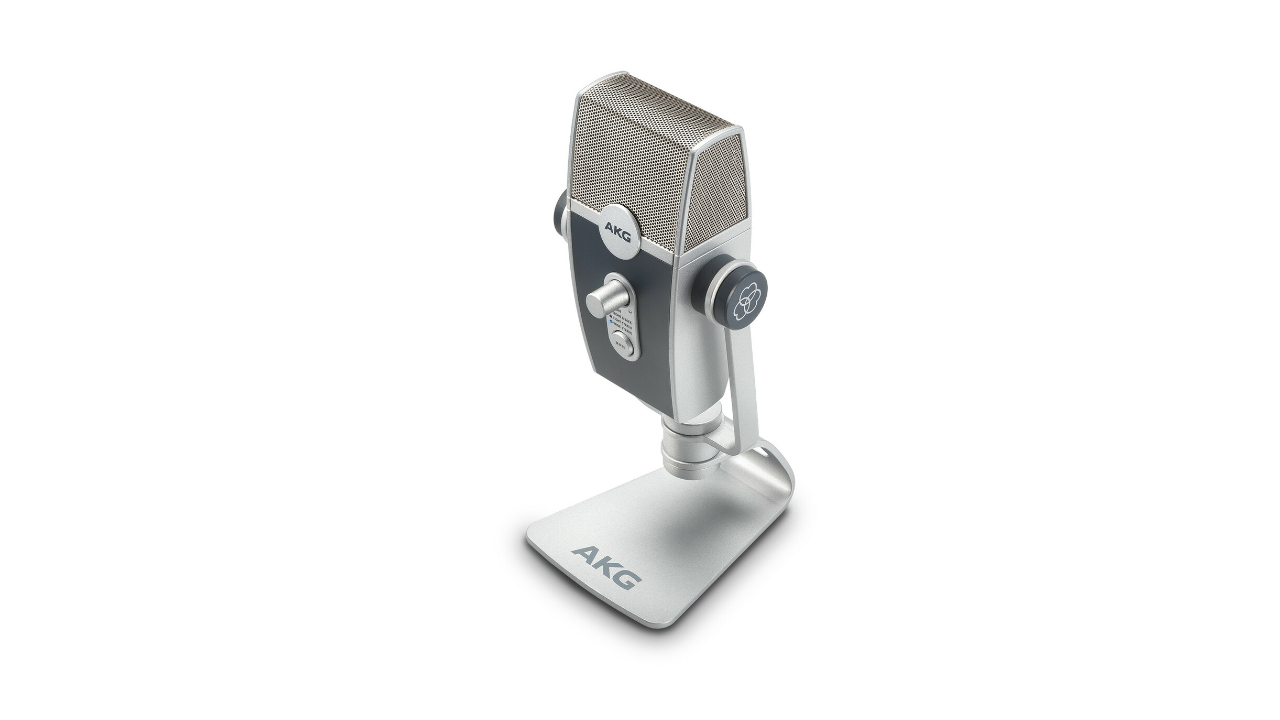
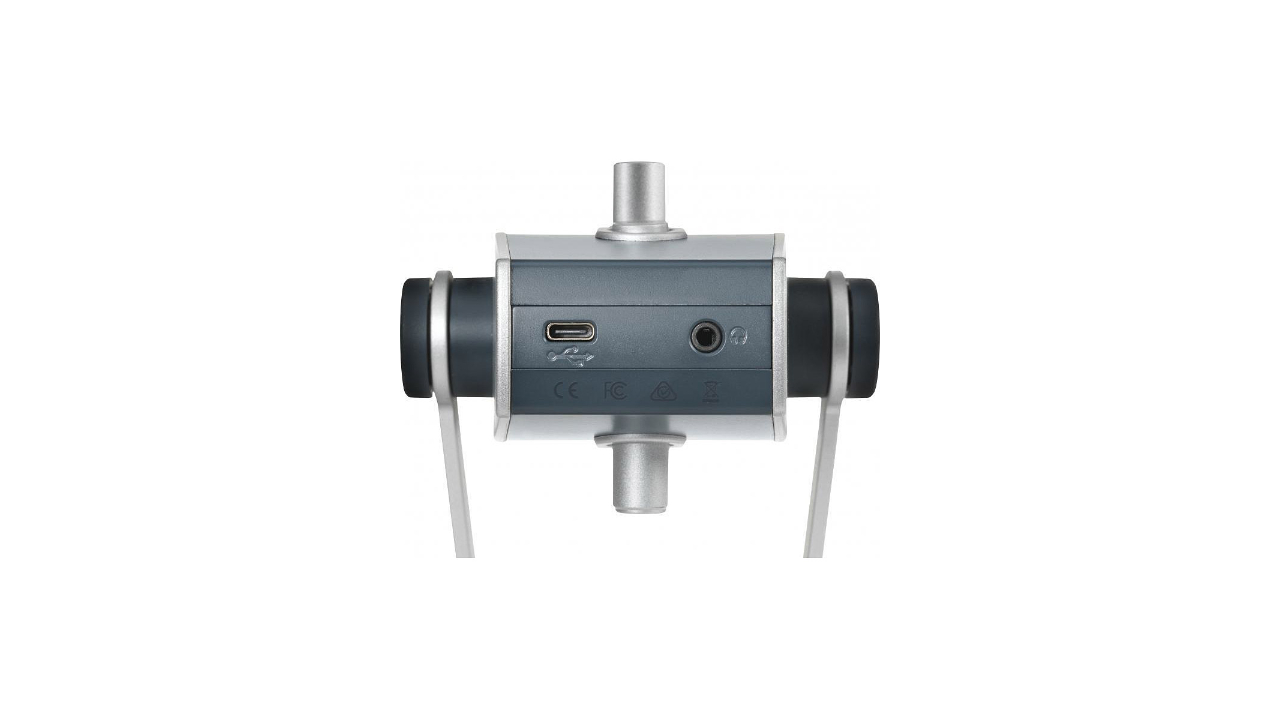
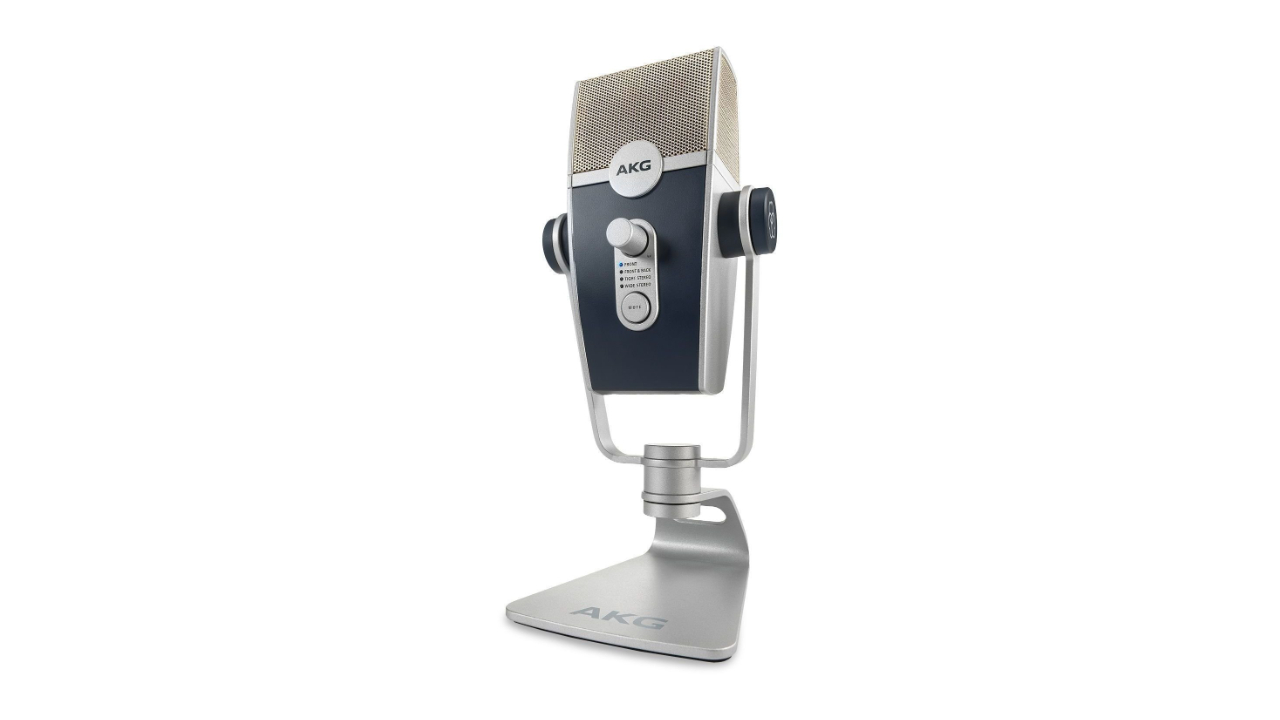
AKG Lyra review: Performance & verdict
Like we say then, lovely stats and features on paper. But in use the AKG Lyra excels too. It feels great for starters; it is solid on your desktop as it should and it has a sturdy build quality that gives you the confidence to throw it in front of anything. And when you do that AKG name really does seem to bring a great tone, especially and perhaps obviously for the voice with clean and crisp recordings.
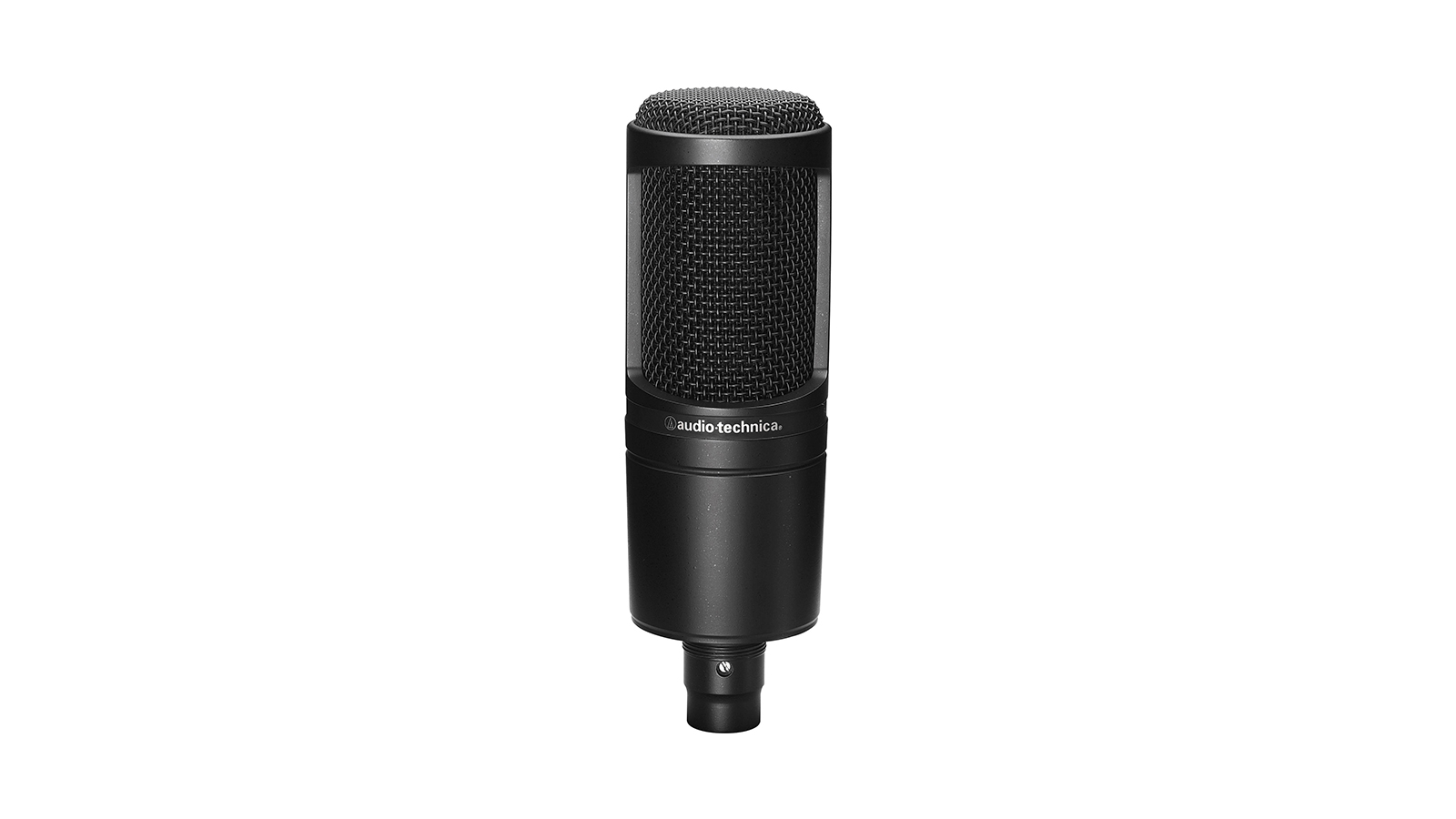
But the Lyra is not just suitable for its intended application as a podcasting mic. You will get decent singing results on top of detailed spoken word. And happily, you will also be able to use it on instruments – acoustic guitar especially. In fact it performs better as a 'one mic-fits all' solution for a range of studio tasks, even though it is quite clearly aimed at the world of digital casting. We found that with pretty much anything we threw it at, it performed well above our expectations. You will have to experiment with the polar pattern options to get the best results, but as these are so easily within reach, it's not exactly taxing to do, and you'll soon be homing in on the best and most obvious option, whatever your recording goals.
AKG Lyra review: Hands-on demos
Podcastage
Pat Flynn
AKG Lyra review: Specifications
- Includes: integrated desktop (detachable) stand
- Sample rate: 192kHz
- Bit rate: 24-bit
- Capsules: 4 proprietary, permanently polarized back plate, condenser capsules
- Polar patterns: 4 switchable capture modes - front, front & back, tight stereo, wide stereo
- Frequency response: 20Hz – 20kHz
- Max SPL: 129d0B
- Contact: AKG
Andy has been writing about music production and technology for 30 years having started out on Music Technology magazine back in 1992. He has edited the magazines Future Music, Keyboard Review, MusicTech and Computer Music, which he helped launch back in 1998. He owns way too many synthesizers.
With its latest free update, Ableton has finally turned Note into the app I always wanted it to be
Technically capable, but struggle to make your tunes sound musical? 5 simple music theory hacks to make your tracks stand out
"Despite its size, it delivers impressive audio quality and premium functions as well as featuring a good selection of inspired sounds": Roland GO:Piano 88PX review
